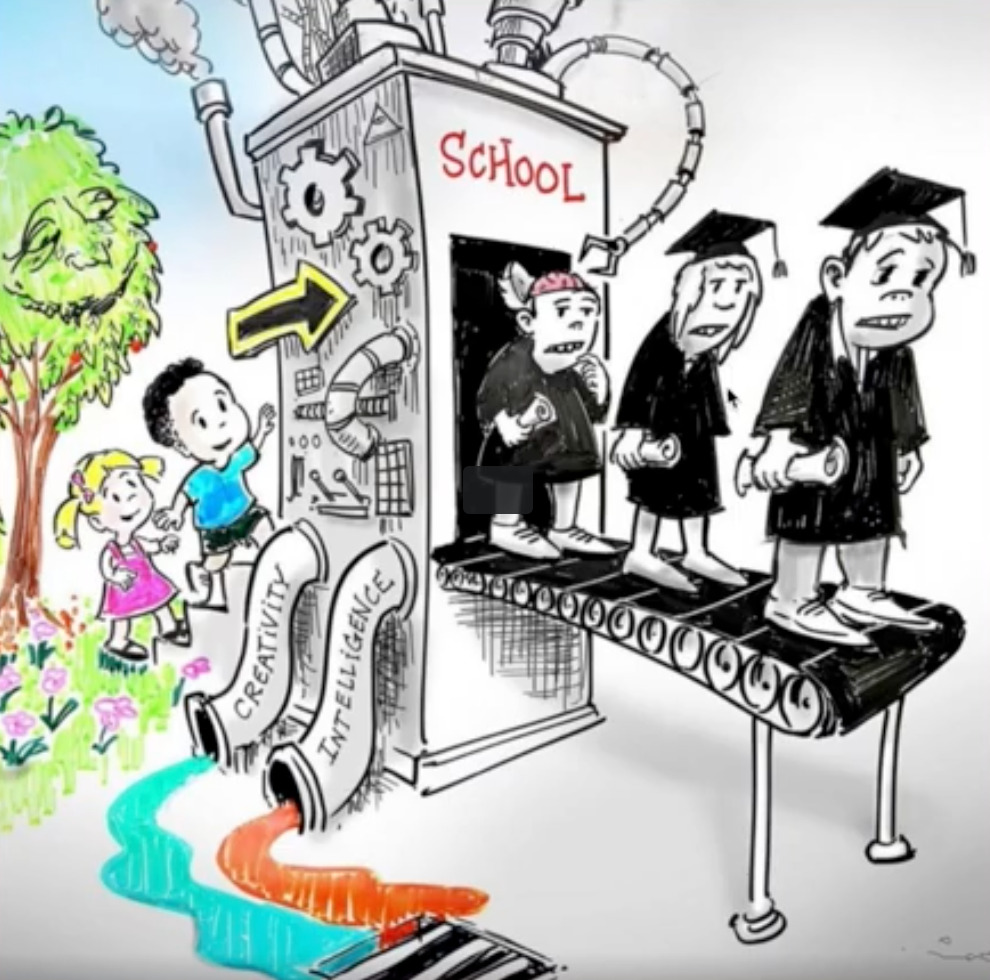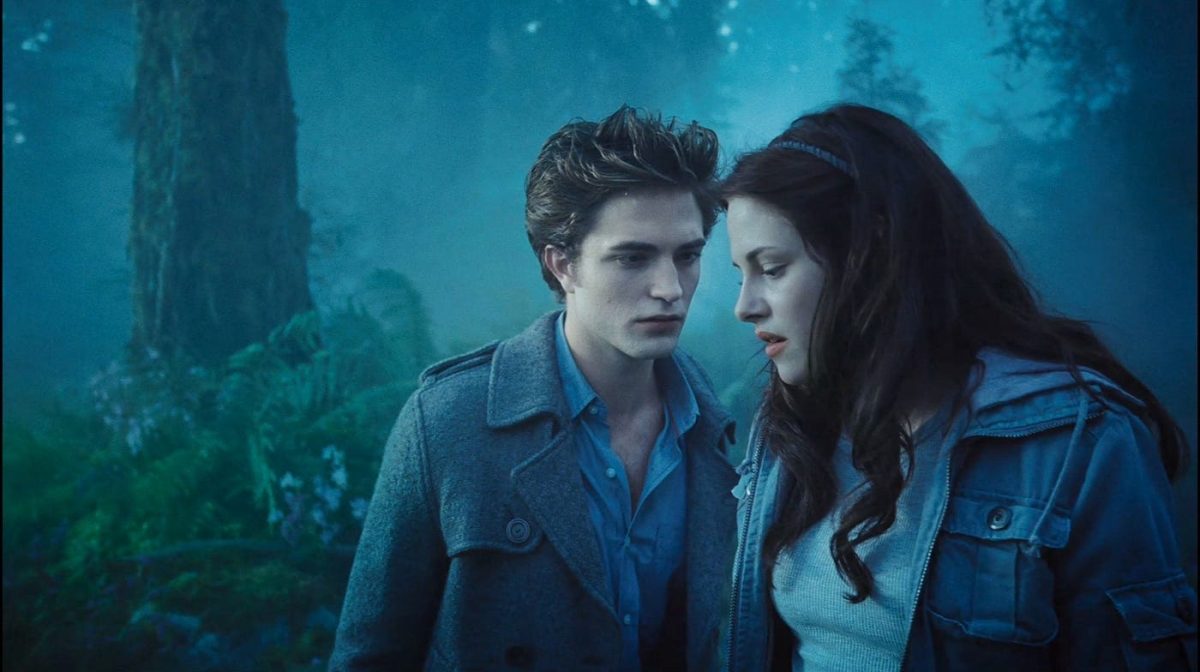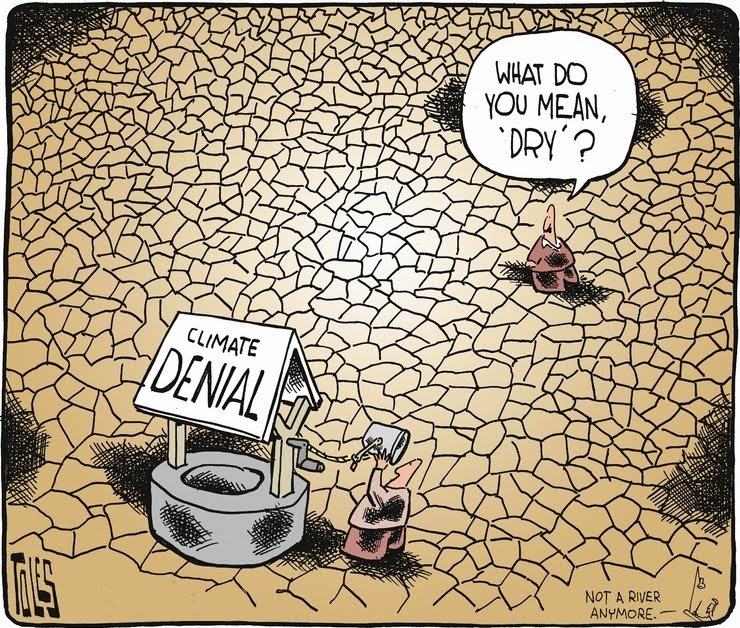I am not talking about reforming education in the traditional sense pitched by liberal and conservative media outlets. To those who read the title of the article and are concerned about my sentiment or underlying desires that fuel the writing of this piece, I am here to provide some clarification:
I am not here to dispute the claim that education is one of the most noble services provided today. Education is, without a doubt, the great equalizer, and levels the starting ground of many a peoples in this nation.
Nor am I here to dispute the claim that our faculty is flawed. People are people: you’ll have great teachers, some not-so-great, that’s a given in our variable world.
I am here to provide the reasoning on why I believe the purpose of education today is deeply flawed. I am not primarily focusing on the structure of education, but rather on how education interlocks and functions with other parts of the society we live in today.
And with that declaration, I must start a few miles away from my final idea (I know, I know, but this blabber does indeed have a purpose). And that begins with the question: what is our purpose as human beings?
There are two levels to this question, the individual level and the collective level. Both answers must cooperate to have an optimally functioning society. Starting with the individual level, most humans have needs that overlap quite a bit. We want to be happy, we crave a sense of identity, we desire freedom, and we seek love. Generally speaking, these needs apply to almost everyone in the human race. Sure there are others whose psyches work in different ways, but for the most part, satisfying these conditions is enough for the individual to reach self-actualization.
Moving onto the collective level, there is a collective need to cooperate and continue discovery such that we humans can live securely and comfortably. This is in conjunction with fulfilling everyone’s individual needs. Again, some people may disagree with this goal, but for the most part, these are goals that the vast majority of people would support.
We can move off of assumptions and see these goals furthered in history when societies are running optimally. During the golden ages of historic civilizations, positive effects pointed in the direction of these goals. Citizens of these golden-age states would have their individualized needs met, which would prompt them to produce the most productive works in history to further our human ideal of discovery. Therefore, it is reasonable to conclude that human societies tend to move towards the above goals.
Now that we have established what we are trying to achieve as a species, we must understand the machinations in between. This raises the next few questions, what is society, and how can society move towards these goals?
Society is made up of institutions. These institutions are complex machines that organize people and their lives. For example, the relevant institution of education is a core tenet in one of our society’s specialized goals of the American Dream. These institutions work together to satisfy the needs of individuals to fulfill our collective goals. Now, it must be noted that these goals may not be aligned with the “ideal” goals defined above. These are goals specific to the societies in question and are not specifically defined, but rather developed as a society moves through the course of its life.

I believe the institution of education is necessary because the ideal of discovery would be impossible without an understanding of the collective body of knowledge. Education must be a piece of the puzzle to design our ideal society. This isn’t exactly a radical idea, in fact, philosophers such as Rousseau also promote and agree with this point. Rousseau wrote an education essay entitled Emile, in which he believed that for a pure man to survive in a corrupt society, one must have a proper education.
I shall not take this path and instead have a more realistic view of man and society as variable. Therefore, the institution of education must be fundamentally pure to produce the most benefit, since I believe that education helps shift the distribution of values and intentions upward.
For example, let’s say that a newborn child Steve grows up without an education and serves the world as a peasant farmer. Fulfilling a human need to survive? Yes. But is he moving society more towards its collective goal? Perhaps not as much compared to if Steve grows up with an education that inspires him to develop solutions towards allowing more efficient and less intensive farming. Now society can use the excess productivity towards other needs that can be fulfilled.
Whether or not this excess productivity is used efficiently is another matter and perhaps a topic for another essay. Additionally, before we address utilization, we need an educational institution that can plant this inspiration into people to maximize their contribution to the collective good.
This inspiration comes in the form of intellectualism: a combination of ideals that enable people to be creative and imaginative with their ideas, discarding prejudices towards groups and instead valuing collaboration. And no, intellectualism is not intelligence, it is more of a mindset that allows people to free themselves from the shackles of the status quo and social stigma.
The key issue of the purpose of our educational system is that our system isn’t being used to spark intellectualism, it is instead redirecting the flow towards a more instantly-gratifying career path. People instead go to school to do bean-counting, which is just a more sophisticated form of Steve’s peasant farming in disguise when it comes to developing social goods.

This is an effect of our current societal values, which are reflected in our institutions. We focus on maximizing our individual profit, on maximizing the status quo, not on maximizing the ideal goals of our human race.
And I don’t mean just public schools when I talk about education as an institution. Learning, in the form of tutors, in the form of private schooling, in the form of homeschooling, they have all been polluted by this desire for a more instant gratification.
Where are all our Einsteins today? Where are all our Newtons, our Stuart Mills, our Shakespeares? They are trapped in this cycle, in this rat race. They have not been given the seed of intellectualism. Perhaps the person who may discover the solution to all of our problems is stuck working in gray cubicle 36A at the PepsiCo-Archer Daniels Midland-Lockheed Martin-NBC-Huawei Corporation.
That is me. This is me writing a plea for some change, in the year 2060, when all of our politics have gone to crap, when our values have decayed so rapidly that education no longer desires the status quo. It is the status quo. I do not have the solution to everything, but I do know that if we can cleanse our tribalistic values of greed, perhaps your 2060 will be different from my 2060.
If we want to keep all of our institutions pure, not just education, we must seek to reform the values of our societies to become more oriented toward our ideal future. I am doing my best but I can’t do much, the world has already become too gray. You, while you still live in a world where these values survive, hanging on by the various movements around the world to preserve intellectualism, you can help change the direction of our institutions.
We must normalize a curiosity, about the ideas around us, of what fruit the future trees bear.
We must normalize the ideas of tolerance and cooperation, even for those that we disagree with, for we must have the largest bank of ideas possible to work with. We must normalize being weird, for if we pressure people into a cube for long enough we can start a cube factory. And we must normalize a rejection of unfulfilling instant gratification, which will culminate in a global brain drain to the void.
It may be wishing upon a star to transform these values into our own, and it may be easier said than done. That is true. But perhaps, by having more people take these principles and practicing them themselves, we can slowly integrate enough of these values to change our path.
God forbid any of you have to experience my 2060. The future is bright if you and your fellow peoples desire. Spread the word! Make leaflets rain! One is better than none, but a whole planet is better than some.







